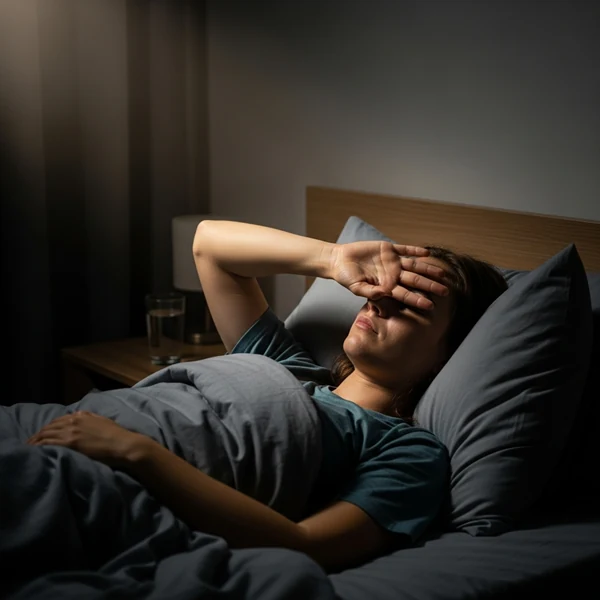8841 East Bell Road, Suite 101, Scottsdale, AZ 85260 | Rate: ★★★★★

What’s the Difference Between a Tension Headache and a Migraine?
Head pain can feel different. It might be a tight pressure or a strong pain on one side. These signs can mean a tension headache or a migraine. They are not the same and need different care. In this article, we explain everything about tension headache vs. migraine so you can get the right help.
Tension Headache vs. Migraine Symptoms
Tension headaches and migraines do not feel the same. Each one has different signs that help tell them apart. Here are the common signs of both to help you understand the difference.
Signs of a tension headache:
- Pain feels like tight pressure around the head.
- Pain happens on both sides of the head.
- Pain stays mild or moderate.
- Moving or walking does not make it worse.
- You don’t feel sick to your stomach.
- Light and sound do not bother you much.
- You can usually keep working or finish your daily tasks.
Signs of a migraine:
- Pain feels sharp and throbbing.
- Pain often stays on one side of the head.
- Moving makes the pain worse.
- You may feel sick or throw up.
- Bright lights and loud sounds can feel too strong.
- You may see flashing lights or blurry shapes before the pain starts.
- Pain can last for many hours or even a full day.
- You may need to lie down in a dark, quiet room to feel better.
Tension Headache vs. Migraine Causes
Tension headaches and migraines do not start the same way. They come from different causes and affect the body in different ways. Let’s see the main causes for each.
Causes of a Tension Headache:
- Stress or worry
- Poor posture while sitting or standing
- Tight muscles in the neck or shoulders
- Not drinking enough water
- Skipping meals or eating too late
- Not getting enough sleep
- Staring at a screen for too long
- Clenching your jaw or grinding your teeth
Causes of a Migraine:
- Changes in the brain that affect how it works
- Family history of migraines
- Certain foods or drinks, like aged cheese or caffeine
- Not sleeping well or staying up too late
- Hormone changes, especially in women
- Weather changes or bright lights
- Strong smells like perfume or smoke
- A brain that reacts strongly to small triggers

Tension Headache vs. Migraine Treatments
Treating a tension headache and a migraine is not the same. Each one needs a different plan. Tension headaches often go away with rest or basic care. Migraines may need stronger treatment from a doctor. Common treatments for tension headaches and migraines:
Tension Headache Treatment | Migraine Treatment |
Take over-the-counter pain medicine. | Use migraine-specific medicine from a doctor. |
Rest in a quiet space. | Rest in a dark and quiet room. |
Use a warm compress on the neck or back. | Apply a cold pack to the head or neck. |
Try a light massage. | Drink water and stay away from strong light. |
Reduce daily stress. | Avoid loud sounds and strong smells. |
Stay active and get regular sleep. | Track triggers and avoid them. |
Tension Headache vs. Migraine Prevention
Preventing headaches starts with knowing what triggers them. Tension headaches and migraines have different causes, so their prevention steps are not the same. Below are simple ways to help stop each type before it starts.
How to Prevent a Tension Headache
- Sit and stand with good posture
- Take short breaks when using a computer or phone.
- Keep your shoulders relaxed, not raised or tight.
- Drink plenty of water throughout the day.
- Eat meals at regular times and do not skip them.
- Get enough sleep every night.
- Find ways to lower stress, like walking or deep breathing.
How to Prevent a Migraine
- Learn what triggers your migraines by keeping a journal.
- Avoid skipping meals or eating too late.
- Stick to a regular sleep schedule, even on weekends.
- Watch for hormone changes that may affect your body.
- Avoid strong smells, bright lights, and loud noises when possible.
- Exercise regularly and eat balanced meals.
- Ask your doctor about daily medicine if migraines happen often.
Last Word
Headaches can make your day harder. Some feel like pressure from stress, others feel sharp and come from brain changes. Knowing the difference between a tension headache vs. migraine helps you choose the right treatment. A clear diagnosis from a medical provider gives you better care and real relief.
FAQs
Can you get both tension headaches and migraines?
Yes. Some people have both. The symptoms may change from day to day. One day you may have a mild tension headache and another day a strong migraine.
Can lifestyle changes help in managing migraine and tension headaches?
Yes. Eating on time, sleeping well, staying hydrated, and reducing stress can help both conditions.
How do you know if you have a tension headache or a migraine?
Tension headaches cause mild pressure across your head. Migraines bring sharp, pulsing pain on one side, with nausea or sensitivity to light and sound.
Can a tension headache turn into a migraine?
No. They are different types. But having many tension headaches may make your brain more sensitive, which can lead to more migraines over time.
How to treat migraines in kids?
Children with migraines need quiet rest, fluids, and possibly medicine that is safe for their age. A doctor must guide the care to make sure it is safe and correct.
What helps a tension headache while pregnant?
Drinking water, resting, using a warm compress, and practicing good posture can help. Always speak to a doctor before taking any medicine during pregnancy.
Dr. James KellerShabrokh
Dr. James KellerShabrokh is a board-certified specialist in Physical Medicine and Rehabilitation, focusing on spine, joint, muscle, and nerve injuries. He combines rehabilitative care, minimally invasive procedures, and preventive strategies to restore function, improve mobility, and provide long-term pain relief.
